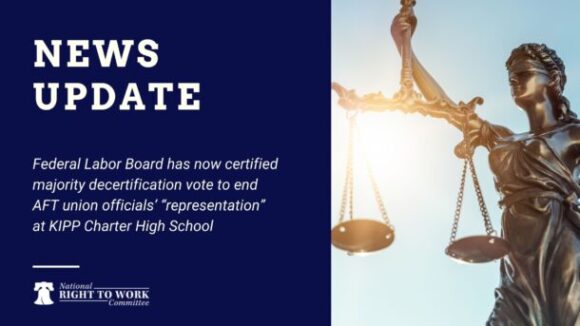Will Team Biden Weaponize Workers’ Pensions?
Big Labor abuse of worker pension and benefit funds as a means of advancing union bosses’ self-aggrandizing policy objectives is a familiar phenomenon.
Newly reported and revised U.S. Commerce Department data out today confirm that forced-unionism Illinois has one of the worst track records in the country for private-sector compensation growth over the past decade.
After adjusting for inflation using the CPI-U, Illinois’s private-sector compensation (in the form of wages, salaries, benefits and bonuses) grew by just 2.1% from 2002 to 2012, less than in all but eight other states. Every single one of the 22 states that had Right to Work laws on the books throughout the 2002 to 2012 period had private-sector compensation growth greater than Illinois’s.
Given the Prairie State’s miserable track record, you’d think private-sector union lobbyists in Springfield would eagerly support legislation to bring jobs in the fast-growing oil and gas industry to Illinois. Instead, as Nathaniel Botwinick pointed out for us on the National Review’s Corner blog late yesterday afternoon (see the first link below), forced dues-funded union lobbyists and their coconspirators are actually throwing up road blocks.
Botwinick directed his readers to March 22 Chicago Tribune news report by Julie Wernau (see the second link below) furnishing the details:
SPRINGFIELD — — A coalition of business, labor, construction, transportation and agricultural organizations Thursday pulled support for a bill that would open the state to horizontal hydraulic fracturing, after a last-minute amendment was added that would require unionized well water contractors at each well site until drillers themselves were licensed.
Brad Richards, executive vice president of the Illinois Oil and Gas Association, said the bill’s requirements could delay drilling for more than a year. Drillers, he said, might decide to skip Illinois. . . .
The oil and gas industry, which believed it had reached a deal March 15 on taxes that would be paid to state and local governments, was surprised by the amendment.
“We’ve spent nearly a year negotiating this intensely, and the concept of licensing has never been introduced,” Richards said.
The bill, hashed out over 10 months, was scheduled to be heard in committee Thursday. The room was packed and an overflow crowd waited outside. But the House Revenue andFinance Committee postponed a vote on the fracking regulations after it became apparent that the bill, as written, would not win enough support in committee to advance to the full House.
Energy experts say new, more efficient drilling methods could unlock billions of dollars of oil and gas in Illinois during the next two decades. The Illinois Oil and Gas Association says about 500,000 acres, the equivalent of 3 1/2 Chicagos, have been leased to oil and gas companies that are poised to start drilling once the regulations are established.
The amendment requires well contractors to go through an extensive licensing process and was introduced by the bill’s chief sponsor, Rep. John Bradley, D-Marion, at the behest of the Indiana, Illinois, Iowa Foundation for Fair Contracting, which represents the powerful Operating Engineers Local 150 union.
It would give regulators three years to set up a lengthy licensing process that includes classes and an examination. In the meantime, a contractor with an Illinois water well license would be required on every fracking site. . . .
Unions and Regulations Threaten Fracking in Illinois
Push for fracking bill delayed by surprise amendment

Big Labor abuse of worker pension and benefit funds as a means of advancing union bosses’ self-aggrandizing policy objectives is a familiar phenomenon.

What impact does handing a union monopoly power to deal with your employer on matters concerning your pay, benefits, and work rules have on your pay?

Federal Labor Board has now certified majority decertification vote to end AFT union officials’ “representation” at KIPP Charter High School